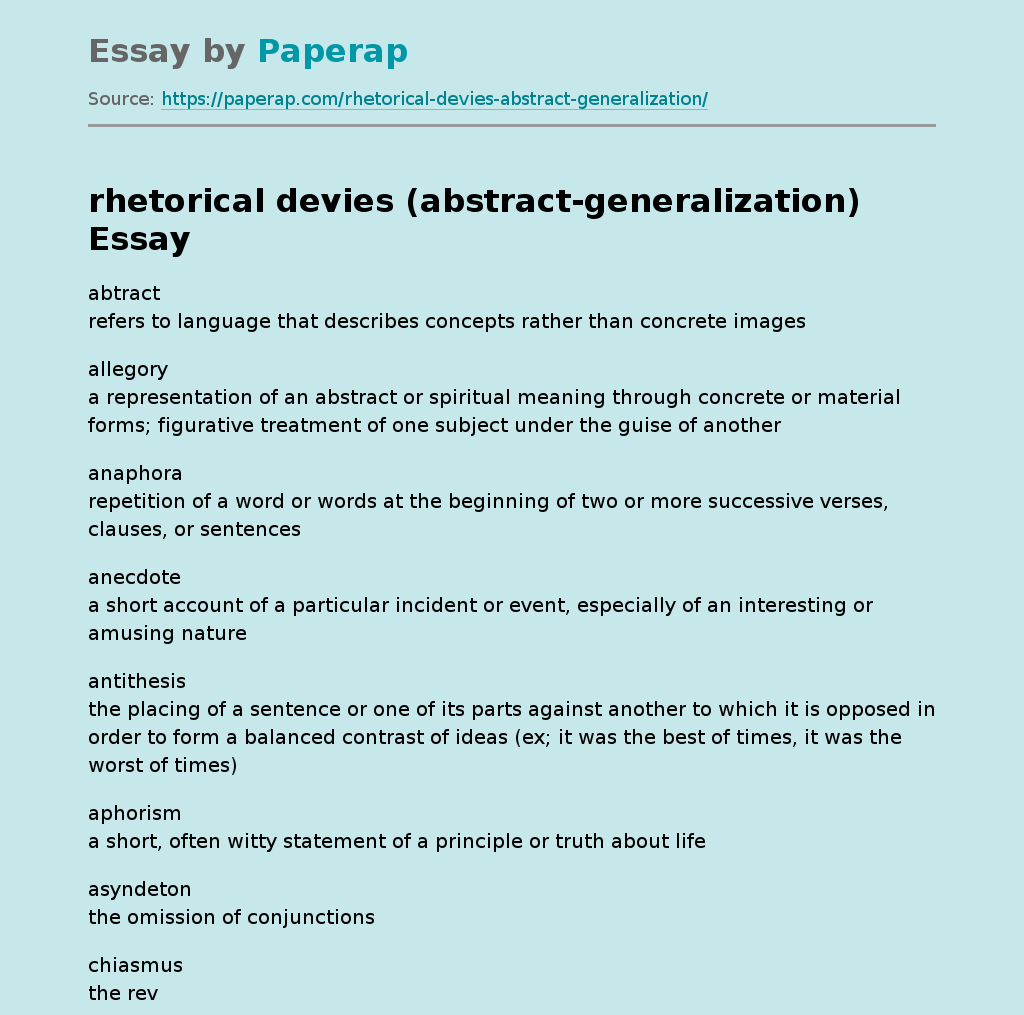rhetorical devies (abstract-generalization)
Essay,
Pages 2 (263 words)
Views
38
abtract
refers to language that describes concepts rather than concrete images
allegory
a representation of an abstract or spiritual meaning through concrete or material forms; figurative treatment of one subject under the guise of another
anaphora
repetition of a word or words at the beginning of two or more successive verses, clauses, or sentences
anecdote
a short account of a particular incident or event, especially of an interesting or amusing nature
antithesis
the placing of a sentence or one of its parts against another to which it is opposed in order to form a balanced contrast of ideas (ex; it was the best of times, it was the worst of times)
aphorism
a short, often witty statement of a principle or truth about life
asyndeton
the omission of conjunctions
chiasmus
the reversal of the order of words in the second of two parallel parts (ex: one should eat to live, not live to eat)
colloquialism
a word or phrase appropriate to conversation and other informal situations
connotation
the associated or secondary meaning of a word or expression in addition to its explicit or primary meaning
deduction
the process of moving from a general rule to a specific example
denotation
literal meaning of a word as defined
diction
word choice
discourse
spoken or written language; including literary works
euphemism
a more acceptable and pleasant way of saying something that might be inappropriate or uncomfortable; often used to obscure the reality of a situation
generalization
when a write bases a claim upon an isolated example or asserts that a claim is certain rather than probable
rhetorical devies (abstract-generalization). (2019, Jan 30). Retrieved from https://paperap.com/rhetorical-devies-abstract-generalization/
